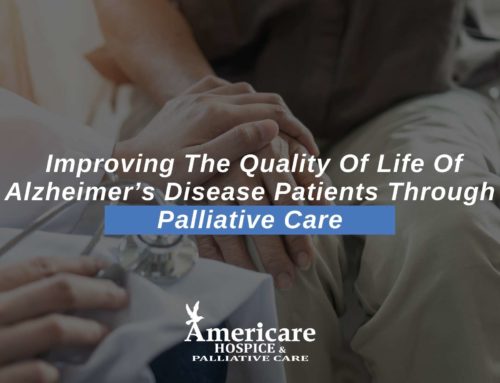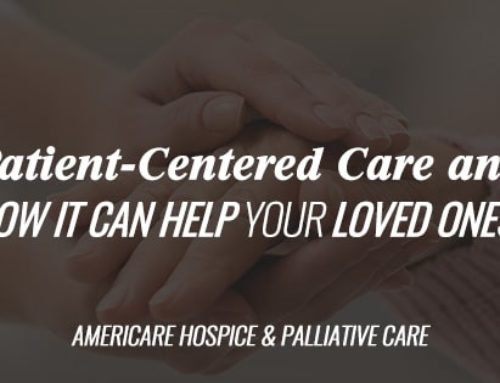Study Confirms Benefits Of Early Palliative Care For Advanced Cancer Patients
Understanding The Benefits Of Early Palliative Care For Advanced Cancer Patients
A new study confirms that early palliative care during treatment can improve the quality of life for some patients with advanced cancer. In a randomized clinical trial, patients who received palliative care alongside standard medical treatments reported numerous benefits, including an enhanced quality of life and improved mood. They also demonstrated better coping abilities with their illness and were more likely to engage in meaningful conversations about end-of-life care preferences with their support teams. These findings highlight the significant positive impact early palliative care can have on patients and their families as they navigate the challenges of advanced cancer.

Improving Quality Of Life With Palliative Care
Mesa hospice and palliative care provides specialized care that is intended to improve the quality of life for patients who suffer from severe or terminal illness, as well as benefit their families and caregivers. Palliative care includes managing symptoms, establishing goals of care, and providing psychosocial support for patients. Although palliative care is often associated with end of life care and terminal illness, it can be useful as early as at the beginning of a diagnosis and continue throughout the patient’s cancer journey, regardless of the outcome. Palliative care helps individuals maintain their goals, enjoy their activities and hobbies, strengthens relationships with family and other support givers, and increases the patient’s ability to cope with the many physical, emotional, and spiritual challenges associated with living with a serious or terminal illness.
Palliative care through Catholic hospice will include many professionals, including doctors, nurses, social workers, chaplains and other religious leaders, physical therapists, counselors, and other caregivers as needed. Palliative care is tailored to each individual patient’s needs.
Trial Proves Benefits Of Palliative Care For Cancer Patients
In the trial, 350 patients, all suffering from a variety of advanced lung or gastrointestinal cancers, were assigned to receive either palliative care along with standard cancer treatment, or standard cancer treatment alone. Both groups were evaluated 12 and 24 weeks after their cancer treatment protocols had begun.
Interestingly, the patients suffering from lung cancer who received palliative care self-reported improvements in both quality of life and mood at the 12 and 24 week evaluations. However, there was no difference reported by patients with gastrointestinal cancers. This raises questions about whether specific types of palliative care may be more or less helpful for patients with different types of cancer, and whether the interventions should be more specifically tailored by type of cancer as well as individual preference.
Palliative care through inpatient hospice develops individualized care plans for each patient in order to meet that patient’s needs and desires as much as possible. This results in higher satisfaction from palliative care as well as more effective results.
The study also highlighted that only 30% of cancer patients who received palliative care reported that they had had discussions about their end of life care, while an even smaller number, just 14%, of the patients without palliative care reported having those types of discussions with their families and caregivers. The researchers involved with the study believe that more research is needed to better understand why so few patients with advanced terminal cancer are not having these discussions, and how palliative care can be used to help encourage these conversations.
Doctors and researchers discovered that patients in the palliative care group were more likely to report using adaptive-coping strategies than patients who were receiving only standardized treatment. Adaptive-coping strategies involve taking specific actions to improve quality of life, and generally include working to accept the diagnosis and utilize available emotional support. Since cancer and other terminal diagnoses are never easy for patients and their families, the findings of the study show promise in helping patients improve their quality of life with Gilbert hospice and palliative care.
Looking To The Future
Researchers are continuing to study palliative care and explore how early palliative care can be implemented more broadly for patients with critical and terminal illnesses. This includes studying approaches with increasingly frequent visits with palliative care as a patient’s disease progresses. Healthier patients may not need the level of care that is needed by sicker patients, enabling facilities to more effectively utilize their palliative care resources. Medical professionals hope that additional research will continue to improve quality of life for patients.
Compassionate Palliative Care In Mesa
If your loved one is facing severe or terminal illness, schedule an appointment with the compassionate team at Americare Hospice. We offer a wide range of hospice and palliative care services that are designed to meet the physical, emotional, mental, and spiritual needs of our clients. As Mesa’s only Catholic hospice, Americare Hospice has developed a reputation for respectful and effective care for people of all faiths. Call our office today to learn more about how we can serve your family.

Americare Hospice and Palliative Care
1212 N. Spencer St., Suite #2 Mesa, Arizona 85203
Office: (480) 726-7773
Fax: (480) 726-7790
Email: info@americarehospice.org





